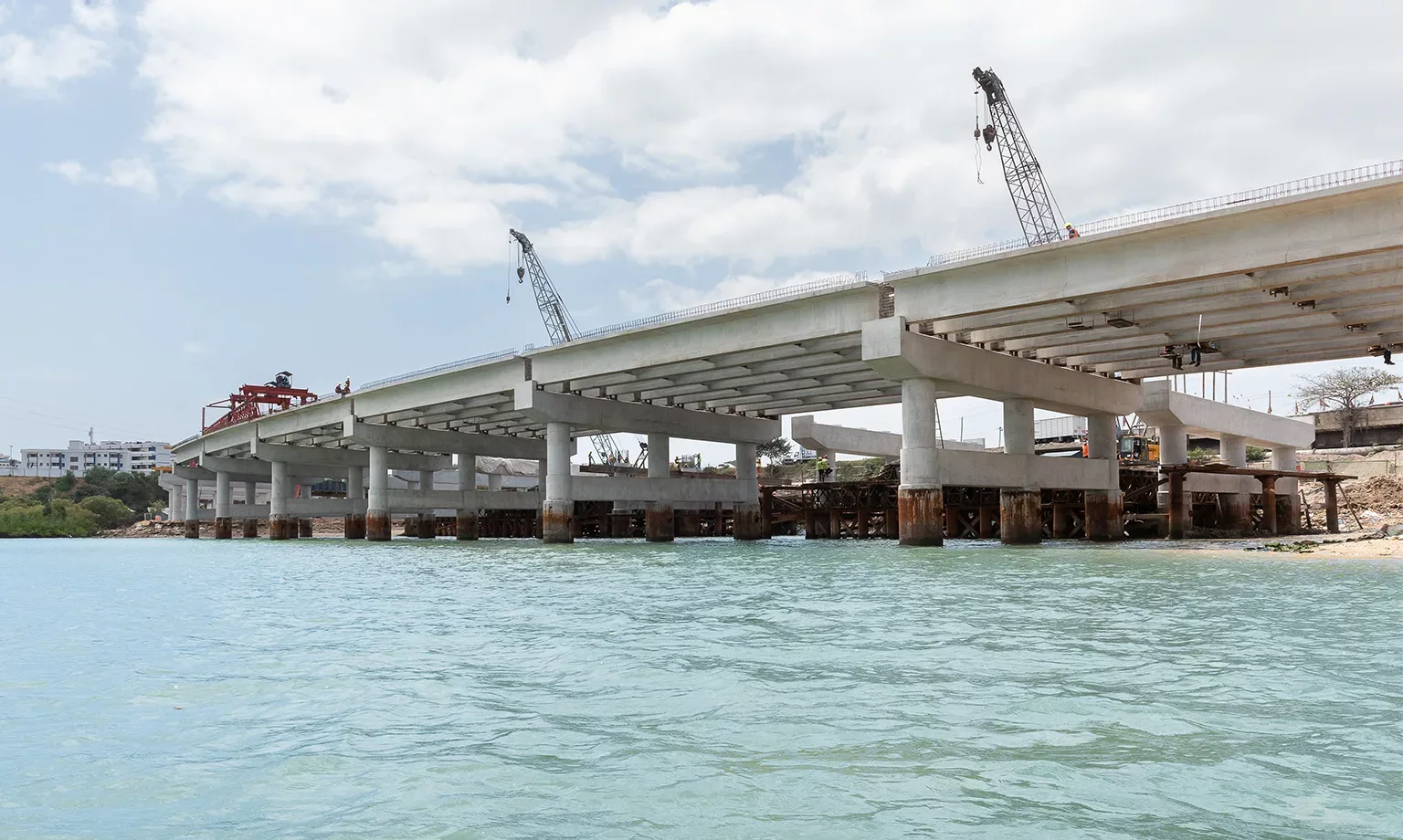As Kenya’s most trusted cement and concrete partner with over 70 years of expertise, Martin Kariuki, Commercial Director at Bamburi Cement PLC, speaks to us about putting innovation and customised solutions to work to build a nation.
BRINGING MODERN ARCHITECTURE TO LIFE
It is impossible to tell the story of East African cement manufacturing without starting with Bamburi Cement PLC (Bamburi).
When Croatian construction magnate, Felix Mandl, arrived in Kenya in 1951 whilst on an exploration mission, he promptly decided to make the country his home, beginning a cement company in the coastal town of Mombasa and thus invigorating the now colossal industry.
Having been synonymous with cement manufacturing and marketing in the region for decades, Bamburi is at the forefront of innovation in construction, driven by high performance, new technologies, and sustainable building and construction products and solutions.
Martin Kariuki, Commercial Director of Bamburi, has nearly two decades of experience in auditing, assurance, and finance, along with a diversified financial services career. These abilities and attention to detail have proven to be crucial in project management and cost analysis within the ever-growing building sector.
“My career in financial auditing exposed me to a variety of industries. I viewed the possibilities of the construction sector as a substantial transition that could provide a new perspective to the organisation,” he opens.
With products and solutions that have helped build the nation, the company’s history speaks for itself – shaping a world that works for both people and the planet.
“Since our inception, Bamburi’s cement and concrete products have been used in the construction of many homes, community infrastructure, and building projects every day across Kenya and the wider region. We take great pride in the trust our customers and partners place in us to bring their dreams to life,” enthuses Kariuki.
“We are proud to have built most of the country’s road infrastructure, facilities, monumental buildings, and iconic structures in partnership with contractors and the government.”
Leading the industry in technical expertise, Bamburi continually expands its solutions to find the best ways to build sustainably.
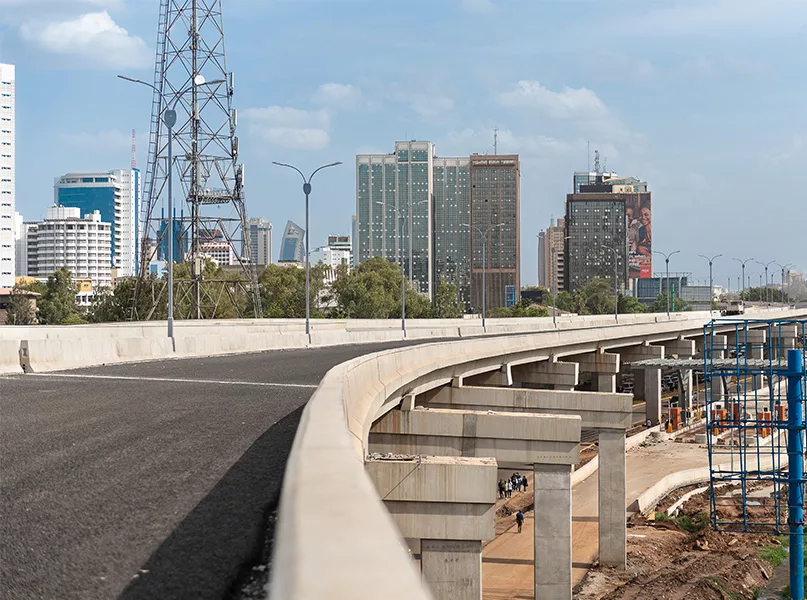
PROVIDING LEADERSHIP TO THE INDUSTRY
Cement is a key ingredient in construction, and no business understands cement in the East African region like Bamburi does.
The company has three subsidiaries in Kenya – Bamburi Special Products Limited, the major provider of ready-mix concrete and precast blocks; Lafarge Eco Systems Limited, an environmental arm whose operations include sustainable land use and quarry rehabilitation; and Diani Estates Limited, whose primary activity is the management of land reserves.
With these three extensions encompassing everything from commercial operations to social impact, there is much excitement and growth to be found within the current market, especially with the profound dynamics of urbanisation.
According to statistics, Africa’s population will reach one billion by 2050, with cities absorbing two-thirds of that total. With more than half of the predicted population being of a young age, the potential for sustainable building and affordable housing is enormous.
Equally significant is the expansion of matching infrastructure connecting major cities, as well as the continent’s rising need to close the infrastructure gap found in other emerging markets.
“With over 50 years of experience in the building sector, we see this as a two-pronged opportunity. First, we must position ourselves to facilitate this growth, and second, we must ensure that the next phase of infrastructure development is constructed in a sustainable manner,” expands Kariuki.
“This entails reducing the impact of construction on our environment in all activities undertaken and using eco-friendly materials in the process.”
This sustainable mindset is linked to Bamburi’s efforts to implement green methods of construction material production and contribute to its decarbonisation goal to attain net zero by 2050.
Such environmentally-friendly efforts can be directly observed in some of the company’s recent projects, including the now-completed Nairobi Expressway Project, the Kenya Standard Gauge Railway, the Dongo Kundu Bypass Highway, the Makupa Bridge, and the Thwake Dam Project.
Specifically, the latter is expected to have a reservoir capacity of approximately 688 million cubic metres with the potential to serve 100,000 hectares of irrigated land, as well as generate and inject 20 megawatts of electricity into the national grid.
This project is particularly special as it utilises one of the company’s green cements, Duracem, which reduces carbon emissions while still being durable and versatile in aggressive environments, highlighting Bamburi’s dedication toward a greener future.
“Social initiatives are a part of our business model that helps us remain accountable to stakeholders and maximises our positive impact within the communities in which we operate”
Martin Kariuki, Commercial Director, Bamburi Cement PLC
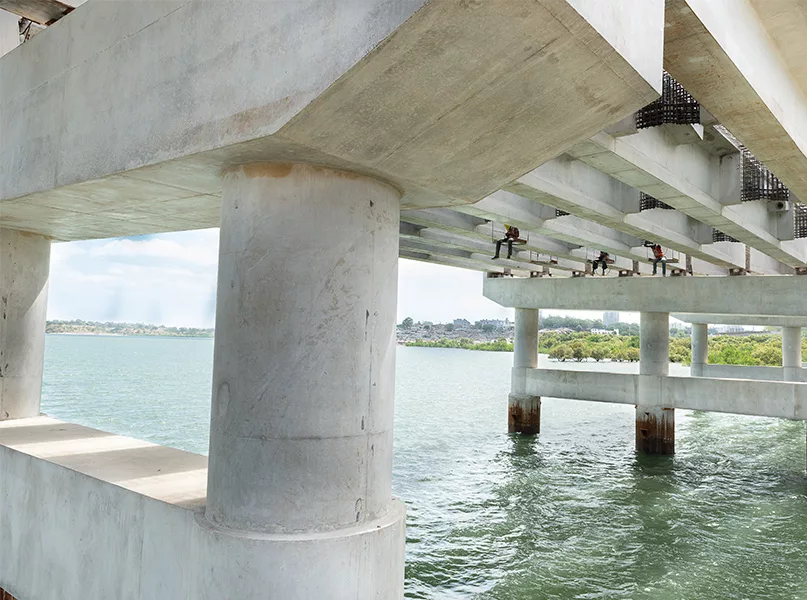
PROGRESSING PEOPLE AND THE PLANET
Managing its industrial impact on the environment is a deliberate agenda for Bamburi. This is in line with the UN Sustainable Development Goal (SDG) 9 on building resilient infrastructure, sustainable industrialisation, promoting inclusivity, and fostering innovation.
As a green company, it takes emission control seriously and is leading the industry in its steadfast belief that adopting sustainable initiatives in day-to-day operations should be the standard.
“Through Holcim Group, we are part of the global solution when it comes to sustainable development for people and the planet, and we, therefore, go beyond holding a local-level social license to operate. Over the past five years, we have invested over CHF200 million in facilitating a positive social impact, benefitting millions,” insights Kariuki.
“In our region, we have positively and socially impacted approximately 130,000 individuals this year through infrastructure programmes, as well as community initiatives on education, water and sanitation, health, and the environment.”
For Bamburi, it’s not just about meeting environmental management regulations but having the best sustainability practices across every area of its operations and committing to the progression of the community and the environment.
Alongside its sustainability endeavours, the company works to ensure its 370 employees are recognised and empowered for their continuous dedication.
With a talent, growth, and management agenda focused on all aspects of employee engagement and development, lateral and vertical mobility from inside teams to senior and managerial positions are being highlighted to encourage employee growth and retainment.
“There is also a strong commitment in prioritising diversity and inclusion, with efforts underway to improve diversity at all levels of leadership. It’s the reason females comprise 40 percent of our board, 20 percent of senior management, 40 percent of professional and line management, and 17 percent of operations,” expands Kariuki.
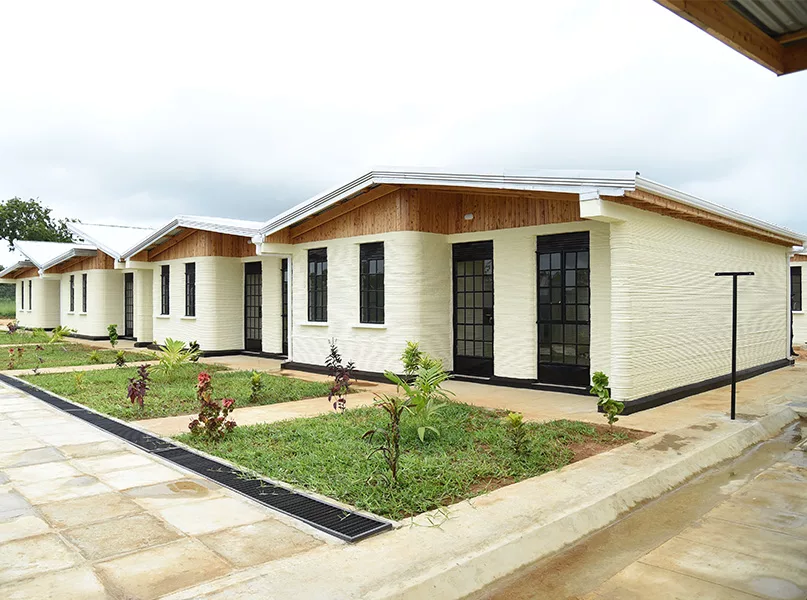
BUILDING FOR THE FUTURE
Bamburi has been setting itself apart from the competition since its inception.
With comprehensive health and safety, cutting-edge innovation, a high-quality portfolio, value-added products, and a rich history of sustainability, Bamburi is proud of the trust its customers and partners have in the company to bring their dreams to life.
Having built some of Kenya’s most formidable construction projects, Bamburi recognises the importance that supplier relationships have within the industry.
“Supply chain operations are the glue that holds all of our operations together, both internally from demand creation to supply execution, and externally from customers, suppliers, and regulatory agencies,” explains Kariuki.
Looking to proactively procure through supply chain partnerships, the company has made it a mission to increasingly include minority-owned businesses in its supply base, with a goal of channelling 30 percent of its total addressable spend by 2025 into underrepresented groups.
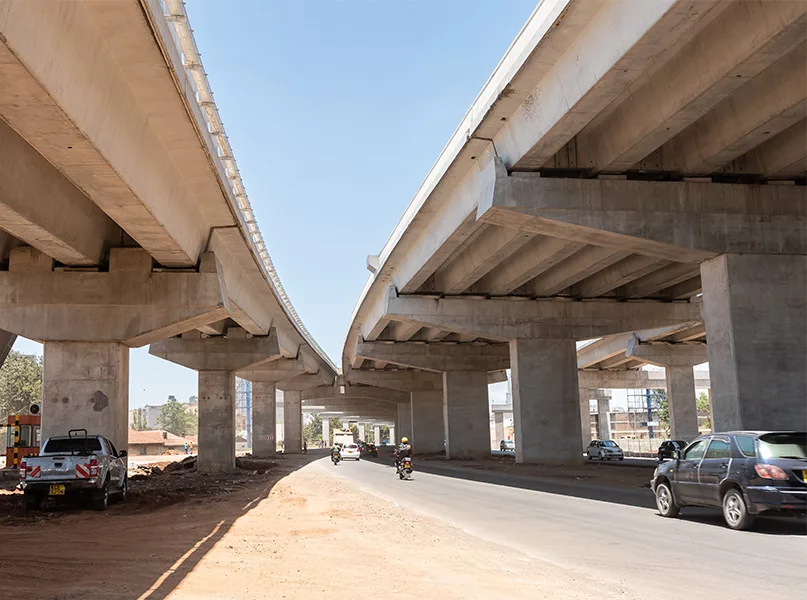
“We are committed to continuously making a positive impact towards this goal. Our suppliers and partners are critical allies in this journey,” he continues.
Additionally, Bamburi is looking ahead as it continues to grow on a feasible, sustainable path to a net zero future.
One of the most fascinating initiatives it is involved in is 3D printing technology in building. This innovation seeks to provide greater operating efficiency along with quick, scalable, and affordable housing, saving close to 20 percent on construction expenses and lowering carbon dioxide emissions by up to 80 percent.
Over the years, the company has embarked on a mission to build the nation through investment in innovation, high-quality cement, solutions that meet the specific needs of the industry, and most importantly, a sustainable approach.
Today, Bamburi proudly stands as the leading cement manufacturing and marketing company in the East Africa region.
“We simply transform customer dreams into reality by exceeding their expectations,” concludes Kariuki.



